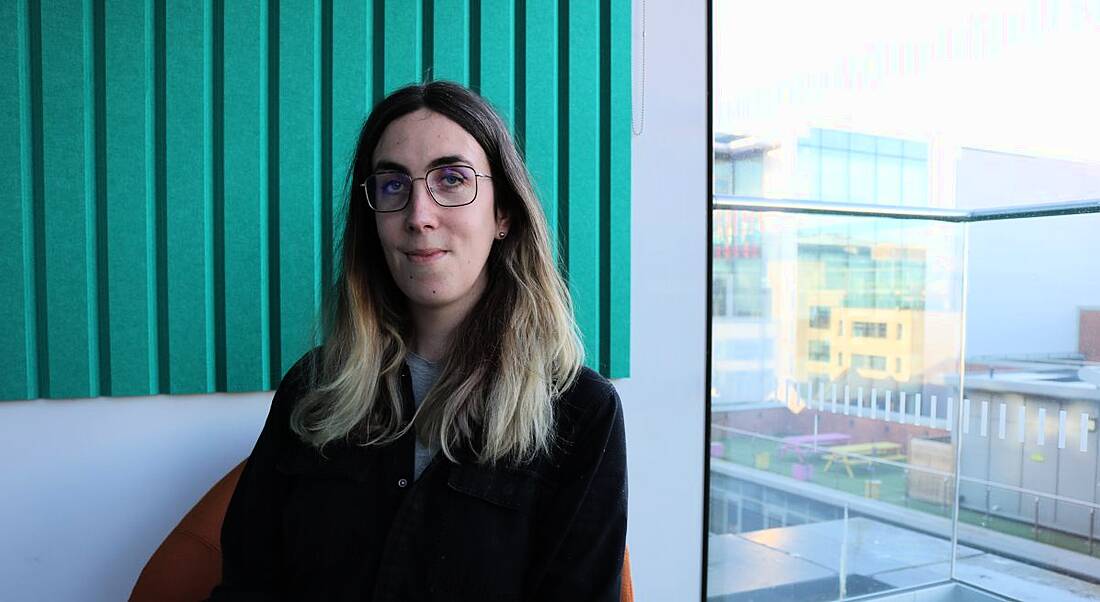Zalando’s Violet O’Brien discusses her role as a junior software engineer and what it was like starting a career during the Covid-19 pandemic.
Violet O’Brien is a junior software engineer working in the product data serving team at Zalando. Her role entails developing and maintaining services that allow for accurate product and category information to be assigned to the articles on Zalando’s website. “Given the number of articles on the site, scalability is a key focus for us!”
According to O’Brien, her interest in technology began with video games, as she grew up playing a variety of games on her family’s Super Nintendo and sitting at arcade machines on the weekends.
“My dad used to take my brothers and I to an arcade on the weekends where they would play pool and he would sit me at an old game cabinet and I would smash away at the buttons, oblivious to the fact that you had to pay for these things and that the demo screen had little to do with my energetic inputs,” she said.
“I like to think of my career now as a sort of mental rematch against the world of tech.”
‘Just because two roles are in software development doesn’t mean they’ll be exactly the same, or even alike’
– VIOLET O’BRIEN
Tell me about your experience starting in software development during the pandemic?
I remember being incredibly eager to start working. My final year of college work had all been work done independently of my classmates, mostly just working with individual staff members in the college, and I couldn’t wait to start some more collaborative work again.
So after interviewing around for a couple of months from my living room, I snatched the first job offer I got – a junior role in fintech.
Once I got started, they assigned me an onboarding and training process for about two months. This was something that was designed to be in-person but a replacement had been set up for a remote approach.
It consisted of a mock project designed to give me a taste of the software engineering problems I would face in the company. Following my completion of the programme, I was placed on a team and started taking on work, remotely attending daily stand-ups, weekly planning and overall, trying to contribute to the team and the company overall.
What were some of the biggest challenges you faced during that time?
I felt that the lack of a proper network around me was the biggest challenge during my time starting a career. There is a lot to learn in a career in software engineering. It’s an ever-evolving and expanding field and coming out of college into a professional career can feel a bit like trying to board a moving train.
When I started out I was overwhelmed with how much there was to learn, from coding professionally for the first time in my life, to trying to grasp the financial concepts underpinning that code. People in tech often talk about ‘on-the-job’ learning, and I couldn’t seem to pick up the skills I needed to, ‘on the job’ or off it.
Simply put, I was struggling, and as it was my first job in development, I had no experience or points of reference to draw on. My confidence took a huge hit because nobody else seemed to be struggling like I was.
I started to think that I wasn’t cut out for a career in development and promptly moved on from that role. I have to say moving on proved to be a great decision for me. In a new role I immediately saw that just because two roles are in software development, it doesn’t mean they’ll be exactly the same, or even alike.
As we emerge from the pandemic, how has your working life changed?
It is only looking back on that experience now, having settled in a job I enjoy, getting to work outside of my bedroom and having regained my confidence in my development, that I can point to what I was missing initially. It was a network.
What I hadn’t considered about on-the-job learning is what it looks like in practice. It’s not Googling something during office hours. It’s conversations with other junior developers about resources they found helpful.
It’s pair-programming and knowledge-sharing with more experienced colleagues. It can be getting points of reference as to how other teams, managers or even companies operate. Sometimes it’s even being able to go for a coffee with someone and say that you’re struggling with the work lately.
While there are certainly people who can set up these networks and communities for support remotely. I just am not able to replicate the benefits I get from in-person conversations and collaborations, be it at tech meet-ups, in the office or in the pub afterwards. Ultimately I found it much easier and much more rewarding tapping someone on the shoulder instead of pinging them to schedule a video call.
How do you feel about remote working versus in-office working?
I personally am operating on a hybrid approach to the office. While I’m not needing as much support as when I originally started, there’s always more to learn and I feel that the days that the office is busy is the best environment for that.
The on-site days are also great for focusing on your teams and more collaborative efforts, such as whiteboard sessions or planning. Of course there are days when I have a clear idea of what I’m working on and I feel I’ll be most productive getting it done in a remote setting, but the balance of the two is what has been working for me thus far.
What advice would you give to those who are starting their career remotely?
Focus on finding communities, networks and friends as much as you focus on the work. If you can, stay in touch with those you graduated with and see how they’re getting on.
As more companies than ever before are working remotely, a lot of the communities are going remote too. You can always find virtual meet-ups, discord servers and subreddits filled with people starting their careers remotely, who are all likely to be hitting the same stumbling blocks as you!
10 things you need to know direct to your inbox every weekday. Sign up for the Daily Brief, Silicon Republic’s digest of essential sci-tech news.




